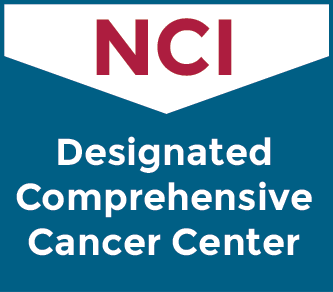Liver Cancer Signs and Symptoms

Liver (hepatic) cancer originates in the cells of the liver, a vital organ in the upper abdomen that filters toxins from the blood, maintains healthy blood sugar levels, regulates blood clotting and produces bile, a digestive fluid that breaks down fats and carries away waste. The cancer occurs when hepatic cells undergo harmful DNA changes that cause them to grow uncontrollably and form tumors.
While the precise causes of liver cancer are not yet fully understood, researchers have linked the condition to chronic hepatitis B or C infection, alcohol abuse, nonalcoholic fatty liver disease and exposure to certain toxins, such as aflatoxins, which are produced by some types of mold that contaminate crops and food products. Other known risk factors include obesity and a family history of liver cancer.
Liver cancer treatment can vary based on the type and stage of the tumor. Options may include surgery to remove part of the liver, liver transplantation, radiofrequency ablation, chemotherapy, radiation treatment, targeted therapy and immunotherapy.
Although hepatic cancer is relatively uncommon, it is becoming more prevalent, particularly in regions with high rates of hepatitis infections.
 Florida's Largest NCI Cancer Center
Florida's Largest NCI Cancer Center
Recognized as a leader in cancer excellence, Moffitt is the state's largest National Cancer Institute-designated Comprehensive Cancer Center by cancer patient volumes.
What are the early warning signs of liver cancer?
The warning signs of hepatic cancer tend to be subtle and nonspecific, such as pain and bloating in the upper abdomen.
What are the symptoms of liver cancer?
As a hepatic tumor progresses, it may begin to produce symptoms that can be felt or seen.
What does liver cancer feel like?
Liver cancer can cause dull or aching pain in the upper right side of the abdomen, just below the ribs. Sometimes, a hard mass can be felt in the painful area. Some people also experience an uncomfortable feeling of fullness (satiety), even after eating only a small amount of food. Due to the position of the liver, any swelling that pressures nearby nerves can cause referred pain in the upper back and right shoulder.
Other sensations associated with hepatic cancer include general malaise, unexplained fatigue, nausea and changes in bowel habits, such as persistent diarrhea or constipation.
What does liver cancer look like?
Visible symptoms of hepatic cancer can include:
- Abdominal swelling – Liver enlargement (hepatomegaly) or fluid accumulation (ascites) can cause swelling and bloating.
- Jaundice – Yellowing of the skin and the whites of the eyes as well as dark urine and pale stools can occur due to the liver’s impaired ability to process bilirubin, a yellowish pigment in bile.
- Skin bruising and bleeding – Impaired liver function can interfere with blood clotting.
- Unintended weight loss – In addition to increased energy demands on the body, liver cancer can cause loss of appetite, nausea, vomiting, early satiety and metabolic changes that lead to muscle and fat breakdown, all of which can cause weight loss.
- Visible veins on the abdomen – Hepatomegaly can create pressure in the veins around the liver, causing those veins to become enlarged.
What are the symptoms of advanced liver cancer?
Hepatic cancer symptoms usually worsen with time. Additionally, if the tumor spreads (metastasizes) to distant tissues or organs, other symptoms may develop based on the location of the new tumor. For instance, if liver cancer spreads to the bones, it may cause frequent fractures.
Advanced hepatic cancer can also damage the liver and interfere with its critical functions. Because this vital organ helps remove toxins and waste products from the blood, liver failure can sometimes lead to life-threatening complications, such as brain dysfunction (hepatic encephalopathy).
Benefit from world-class care at Moffitt Cancer Center
The multispecialty team in Moffitt’s renowned Gastrointestinal Oncology Program focuses on preventing, diagnosing and treating liver cancer. If you would like to discuss your symptoms with a specialist at Moffitt, you can request an appointment by calling 1-888-663-3488 or submitting a new patient registration form online. We do not require referrals.
Liver (Hepatocellular) Cancer
